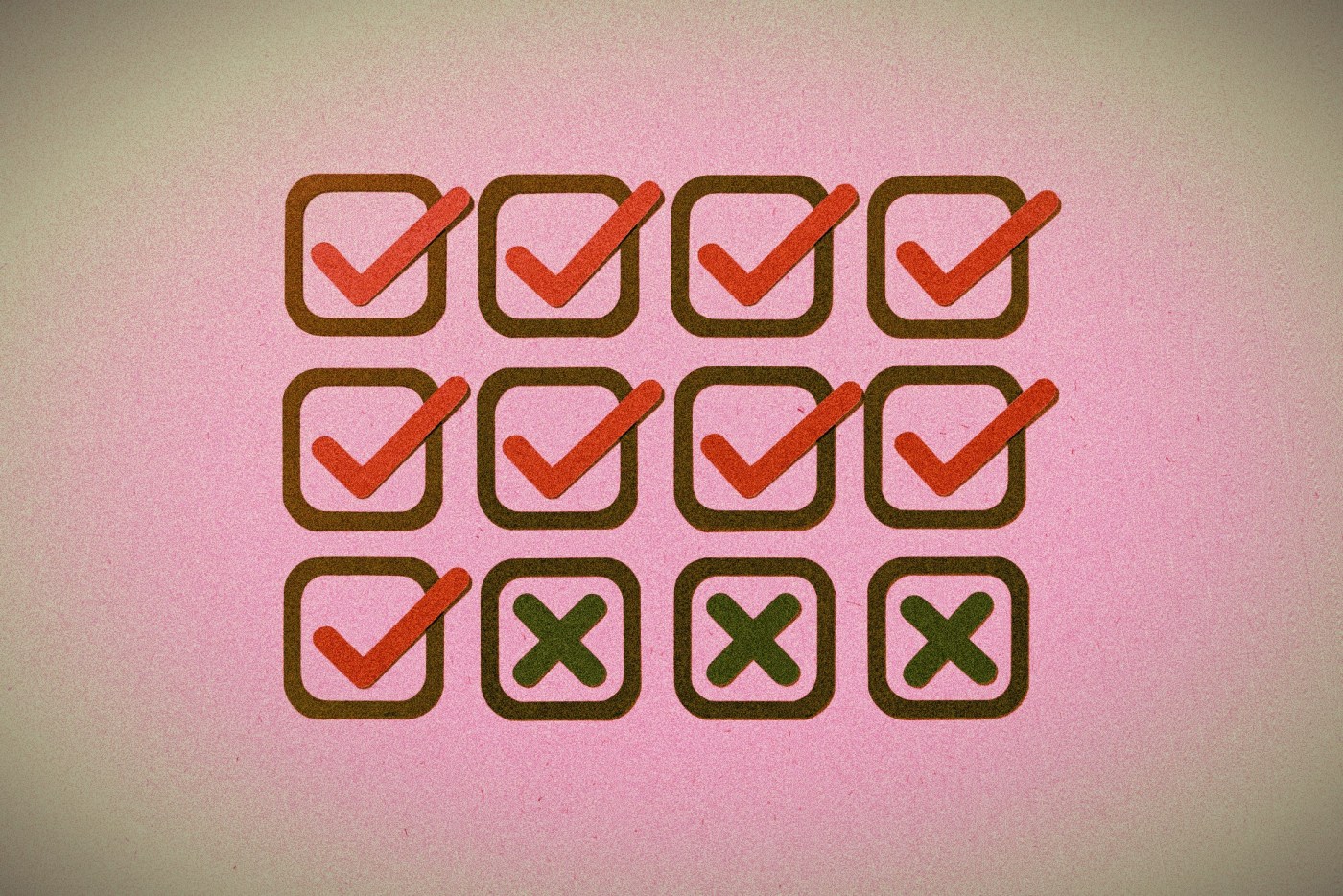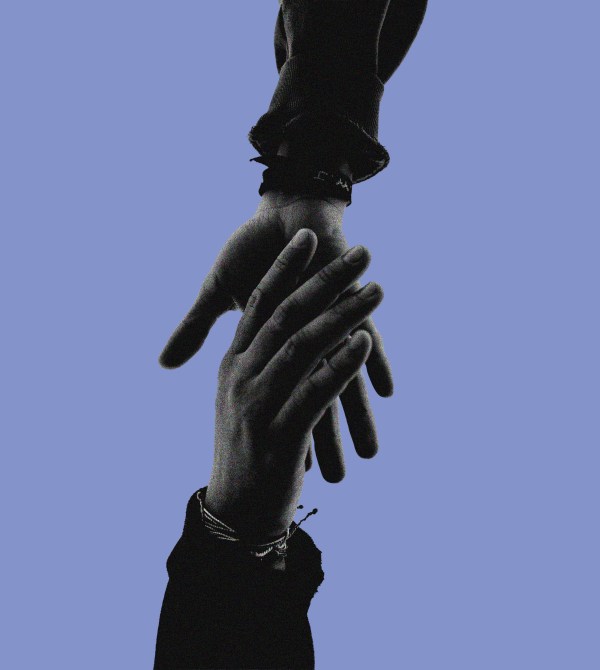The year is 2021. No human being has been born since 1995. The United Kingdom is ruled by a dictator, the elderly are being forcibly euthanized, and priests, in the absence of newborns, are baptizing kittens instead.
This is the premise of P.D. James’ 1992 novel The Children of Men. James imagines a society that has seemingly become completely infertile, in which the government has fallen and where Xan Lyppiatt, the tyrant who styles himself “Warden of England,” has instituted a program of mandatory fertility testing. The clock is ticking: In a few years, there will be no humans of childbearing age left to reproduce; in a few decades, there will be no humans left at all.
Despite this urgency, the Warden’s search for fertile men and women extends only to physically and mentally healthy individuals. This is a world, James tells us, that has become “increasingly intolerant of physical defects”: “no one who was in any way physically deformed, or physically or mentally unhealthy, was on the list of women from whom the new race would be bred.” This doesn’t apply only to people with fatal, incurable, or untreatable medical conditions; a young woman named Julian is exempt simply because two of her fingers are fused together. When Theo Faron, the novel’s protagonist, asks his cousin Xan why such exemptions exist in the first place, the Warden replies, “Why breed from the stupid, the feckless, the violent?” No, if the world is to be repopulated, it must be done with the best genetic material possible.
In real-life 2025, our society is dissimilar in degree, but not in kind, to the England of The Children of Men. Across the West, fertility rates have significantly dropped, though this is likely caused by a combination of socioeconomic factors rather than by an unknown medical condition as in James’ novel. Perhaps most disturbingly, some of us have adopted Xan Lyppiatt’s attitude towards procreation: We do want to have kids, but only optimal children are desirable.
In April, the New York Times published an opinion piece by Anna Louie Sussman profiling Noor Siddiqui, the founder and CEO of Orchid, a company using gene technology to screen embryos for a plethora of conditions, from rare heart diseases to schizophrenia. Siddiqui’s X post about the article went viral—it has over 6 million views to date—and generated a heated debate online about the moral legitimacy of parents carefully selecting the healthiest embryo to use in an IVF pregnancy. Siddiqui’s X thread makes it clear that she’s aware of people’s concerns that she’s “playing God.” She simply doesn’t see a problem with playing God in the first place. Yet, as Sussman puts it in her article, “By giving parents the illusion of so much control, these technologies could lead to viewing embryos as a consumer product while overemphasizing the role of genetics in life outcomes.”
This desire to “optimize” human life reeks of eugenics, yet many fiercely defend it as morally responsible. Julian Savulescu, a bioethicist at the University of Oxford, has advocated for “procreative beneficence”—that is, the idea that potential parents using IVF have a moral duty to choose to implant the embryos that are most likely to have the greatest quality of life. Siddiqui’s justification of her company on X follows similar lines: If you want to have children, you should ensure that you’re not passing down any of your health conditions. Everyone’s baby, Siddiqui writes, now “gets to win the genetic lottery” (everyone, at least, who can afford Orchid’s services). And there’s a moving human story to go with this idea: Siddiqui’s mother went blind while Siddiqui was still in elementary school due to an undiagnosed condition. Siddiqui “got lucky” and didn’t inherit the disease. Now, she’s screening her own embryos to make sure that her own children don’t go blind. She calls this “preventing suffering,” asking: “If you could prevent your child from going blind—would you?” But the belief that one should is taken as a given.
The reality that embryo testing isn’t actually preventing illness, but simply allowing adults to destroy their own “faulty” embryos, seems to escape Siddiqui’s notice. And the fact that if her own genetically suboptimal mother hadn’t chosen to have a child Siddiqui herself wouldn’t exist is entirely ignored.
Issues around children are often cloaked in the veneer of choice—supporters of access to abortion, of course, have long adopted the label “pro-choice.” You can have a healthy child, or you can have an unhealthy one, or you can have no child at all. You’re the adult. You’re in charge. But choice is often an illusion. On Orchid’s homepage, you’re greeted with a moral imperative: “Have healthy babies.” What is really meant here is closer to “Have genetically optimal babies.” For the last several decades, people have been feeling the pressure to do just that. In my country, the U.K., up to 90 percent of unborn babies diagnosed with Down syndrome are aborted. Notoriously, in Iceland the figure has steadily been closer to 100 percent.
But conditions like Down syndrome are not hereditary. On the other hand, adults suffering from hereditary conditions might experience judgment if they wish to become parents. Data around how many adults dealing with mental or physical illness choose to have a family is not as readily available, but major outlets routinely run pieces about the childfree by choice movement. An Atlantic article from 2016, for instance, collected the stories of mentally ill individuals who remained without children—not only to protect their own mental health, but out of a concern about the potential child’s quality of life. Many reported that the desire to have children was ultimately outweighed by the fear that illnesses like bipolar disorder and schizophrenia would be too great a burden for the potential child to bear. A bipolar woman, Liz, mentioned that she would need a much stronger network of support to consider raising a child who would have to grow up with a bipolar mother and with the potential to develop the same disease.
Deciding who should be encouraged to reproduce is a task riddled with ethical conundrums. A person struggling with schizophrenia may feel morally compelled to abstain from having children. What about someone with Type 1 diabetes? Or real-life counterparts of P.D. James’ Julian, people born with non-life-threatening deformities? When we start prizing optimal health above all else, where do we draw the line?
While I have nothing but sympathy for those who are hesitant to expose their children to hardships, I would also urge them—and all those of us who count as “healthy”—to remember that life is hardship. While advancements in medicine and technology allow us to live longer, more comfortable lives, we are a long way away from achieving painlessness, and even longer from being able to predict when suffering will strike. Many parents, mothers especially, begin to struggle with their mental health only after having children, for a variety of reasons including postpartum psychosis, birth PTSD, and depression. Such conditions can’t be always prevented, and yet those children will inevitably be affected, to varying degrees, by their mother’s psychological issues. More generally, people get cancer. People die in car accidents. Life is unpredictable and paved with suffering; we are deluding ourselves if we believe we can ever have complete control.
Still, one may argue, when it comes to childbearing and childrearing we should try to do everything in our power to prevent pain, even if we can’t entirely eradicate it. On the one hand, we may be concerned about preventing further suffering for the adults involved, as it’s undeniable that embarking on parenthood with preexisting health concerns comes with a unique set of challenges. On the other hand, we may also worry that children born to mentally or physically unwell parents will have harder lives from the outset—in addition to the risk of being born with or developing the same infirmities as those unwell parents.
To which I respond: What if we are paying for the absence of pain with the absence of joy? What if, by shielding ourselves from suffering, we are closing ourselves off from becoming more hard-working, compassionate, resilient people? We’re refusing to accept the shared responsibility of the care of the sick, the distressed, the vulnerable, both parents and children alike. By doing so, we’re also unintentionally precluding the possibility of strengthening our social bonds.
When preparing to write this essay, I spoke to several women in my local community as well as abroad who are raising children while battling physical and mental disabilities.
One woman, a 35-year-old European immigrant to the U.K., has been diagnosed with anxiety disorder, with which she has struggled for years. This was aggravated by undiagnosed postpartum depression after her first child was born (the child is now 5 years old). In 2021, she contracted an autoimmune lung condition, spent two weeks in the hospital, and almost died of pneumonia. Friends, concerned for her wellbeing, told her not to have any more children. A relative openly judged her for trying to get pregnant again. She has since had a second child, one year ago, and she tells me she’d love to have a third. She knows that her issues will inevitably affect her children, but she also believes that what kids need most is to know that they are wanted and loved, and she can provide that: “I’m a good mum. My kids are happy.”
Julie Machado is a 39-year-old mother of six, originally from California and now living in Lisbon, Portugal. She always wanted a big family. Everything seemed to be going well until the delivery of her sixth child, during which she suffered an epidural injury. She underwent surgery, but remained in a wheelchair for eight months. Three years on, she can now walk, and her muscle strength is improving, but she still suffers from constant neuropathic pain and still takes opioids—albeit at lower doses—to manage it. In February of this year, Julie discovered she was pregnant with her seventh child. She was initially scared, but seeing her children’s joy at the news of a new sibling, as well as hearing her friends’ promises of help when the baby comes, has helped to assuage her fears. Still, after announcing her seventh pregnancy, she’s dealt with “patronizing” doctors and has received “insulting” criticism from her own sister.
The stories these women have told me serve as a reminder that we’re very happy to encourage people to have more children—as long as the children in question are born in optimal circumstances, and as long as we don’t have to help raise them.
Stories like these are also found all over the internet. Lizzie Reezay, a popular Christian content creator on YouTube, has made a number of videos over the years on her struggles with bipolar disorder. She used to be decidedly against having her own biological children for fear of passing down the disorder. In a video about why she later changed her mind, she explains that her own negative experience with her disorder was largely due to the fact that it went undiagnosed until later in her life. “I’ll be the absolute perfect mom in helping them process that, and work through it and heal,” she says about the possibility of her future children struggling with the disorder. “I’ll know every single emotion that they’re feeling and going through.” Lizzie had her first child in 2024.
Back in 2011, novelist Victor LaValle wrote an article for The Guardian about his decision to have a child despite the crippling fear that he would pass down either schizophrenia or bipolar disorder, both of which ran in his family. After years of agonizing over the decision, his wife Emily got pregnant. “I realise I might pass down an incurable illness to my son,” LaValle wrote, “but living based on what might go wrong seems like less and less of a life as I get older. The one thing I can try to control is whether I teach my child to be ruled by anxiety, by fear.” LaValle’s openness to life is admirable. And yet, there’s something incredibly striking about one of his additional remarks: “The thing I worry about can’t yet be discovered in any test available to medical science.” That statement is already outdated just over a decade later: Orchid now does screen for schizophrenia risk. It’s impossible not to wonder what LaValle would have done if this technology had then been available.
More recently, in 2019, then-college student Julian Assele wrote an article criticizing the platitude that abortion is a mercy for unwanted children. He recounts the horrific stories of his fellow foster kids, yet claims that “aborting children is [not] an act of mercy. … It is society’s justification for the erasure of the most vulnerable.” Assele believes that each person’s life is valuable because “each of them has an innate worth. Life is a gift in and of itself, regardless of the circumstances.” His perspective is in stark contrast to public intellectuals like psychoanalyst Erica Komisar, who, despite claiming to be pro-family, warned lawmakers in a 2022 Wall Street Journal piece that restricting abortion access might result in unwanted children “prone to depression, anxiety, addiction and other social and emotional disorders,” especially if the mother in question was “young and immature.” A sinister message is echoing: A life that begins with a higher probability of certain types of pain is not worth living.
In all these theoretical discussions about who should be encouraged to reproduce, we are ignoring the real stories of men and women bravely raising families in adverse circumstances. We’re ignoring the unpredictability of life, and we’re blinding ourselves to the incomparable joy that children bring. When I asked the 35-year-old woman what she would say to people considering having children despite health concerns, she told me that “parents are never perfect” and trauma inevitably gets passed down to children. But, she also said, “every new life is a chance … for redemption. … We are not put here to be happy and comfortable all the time … but to try to be good, to try to be better.” She is confident that focusing on nurturing a child can do exactly that.
There is a full-fledged philosophical war taking place in our society. For every Julian Assele, who sees life as inherently precious, there is a selective pronatalist like Komisar, Savulescu, Siddiqui. We are encouraging vulnerable people to deny themselves the joy and responsibility of having a family because figuring out how to help them collectively as a society is harder than just telling them to remain childless. With the right medication, resources, and support at hand, many people whom these selective pronatalists would deem unfit for reproduction—the poor, the young, the disabled, the broken, the despairing—might make excellent parents. Many of them already are.
We are asking the question of whether individual people, as self-contained, autonomous units, are fit enough to reproduce. That’s the wrong question. We should ask instead: Do we believe that to exist is in itself a good thing? If we don’t, then we’re not much different from the society of P.D. James’ dystopian imagination. If we do, we must be prepared to share the joys as well as the burdens of existence with the vulnerable and the imperfect—that is, all of us.






Please note that we at The Dispatch hold ourselves, our work, and our commenters to a higher standard than other places on the internet. We welcome comments that foster genuine debate or discussion—including comments critical of us or our work—but responses that include ad hominem attacks on fellow Dispatch members or are intended to stoke fear and anger may be moderated.
With your membership, you only have the ability to comment on The Morning Dispatch articles. Consider upgrading to join the conversation everywhere.